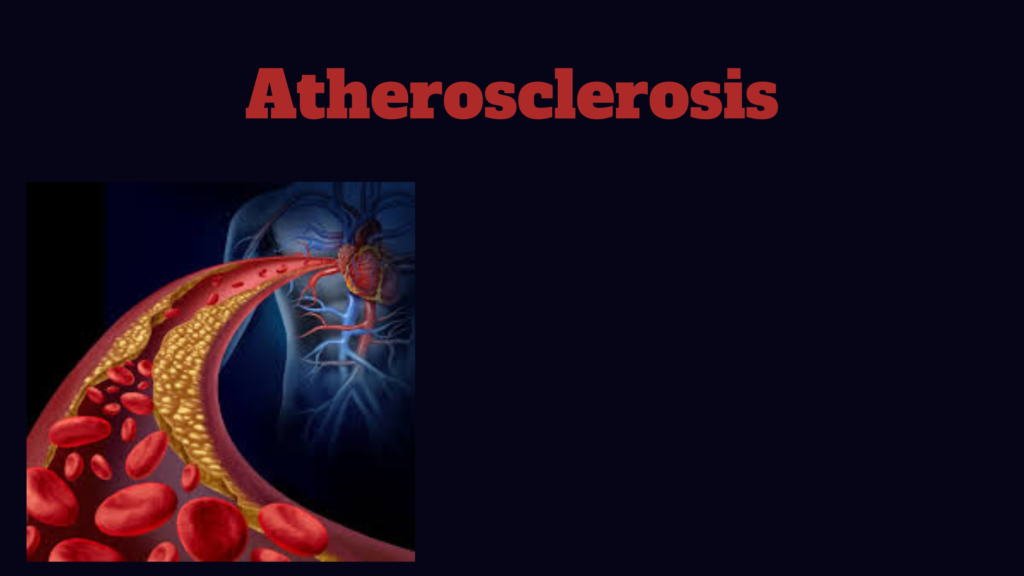Atherosclerosis is a serious condition where plaque builds up inside your arteries, leading to narrowed or blocked blood vessels. This can cause several life-threatening diseases, depending on which arteries are affected.
🦠 What Is Atherosclerosis?
- Plaque = fat + cholesterol + calcium + other substances.
- It hardens and narrows the arteries, reducing blood flow.
- It can lead to blood clots, organ damage, and ruptured arteries.
⚠️ Major Diseases Caused by Atherosclerosis
1. Coronary Artery Disease (CAD)
- Arteries affected: Coronary arteries (supply the heart)
- Symptoms: Chest pain (angina), fatigue, shortness of breath
- Complication: Heart attack (if artery becomes fully blocked)
2. Carotid Artery Disease
- Arteries affected: Carotid arteries (supply the brain)
- Symptoms: Often silent until a mini-stroke (TIA) or stroke
- Complication: Stroke due to blocked blood flow to the brain
3. Peripheral Artery Disease (PAD)
- Arteries affected: Arms, legs (especially legs)
- Symptoms: Leg pain when walking (claudication), cold feet, numbness
- Complication: Non-healing sores, gangrene, risk of amputation
4. Renal Artery Stenosis
- Arteries affected: Kidney arteries
- Symptoms: High blood pressure, kidney dysfunction
- Complication: Kidney failure if untreated
5. Aneurysms
- Cause: Weakening of artery walls due to atherosclerosis
- Common sites: Aorta, brain (cerebral aneurysm)
- Risk: Rupture → life-threatening internal bleeding
🩺 Common Symptoms of Advanced Atherosclerosis
- Chest pain or tightness
- Numbness/weakness in limbs
- Difficulty speaking (stroke warning sign)
- Pain while walking
- High blood pressure
- Poor kidney function
✅ Prevention & Management
- Healthy diet: Low in saturated fat and sugar
- Exercise: Regular walking, aerobic activity
- No smoking
- Cholesterol control (e.g., statins)
- Blood pressure control
- Diabetes management
